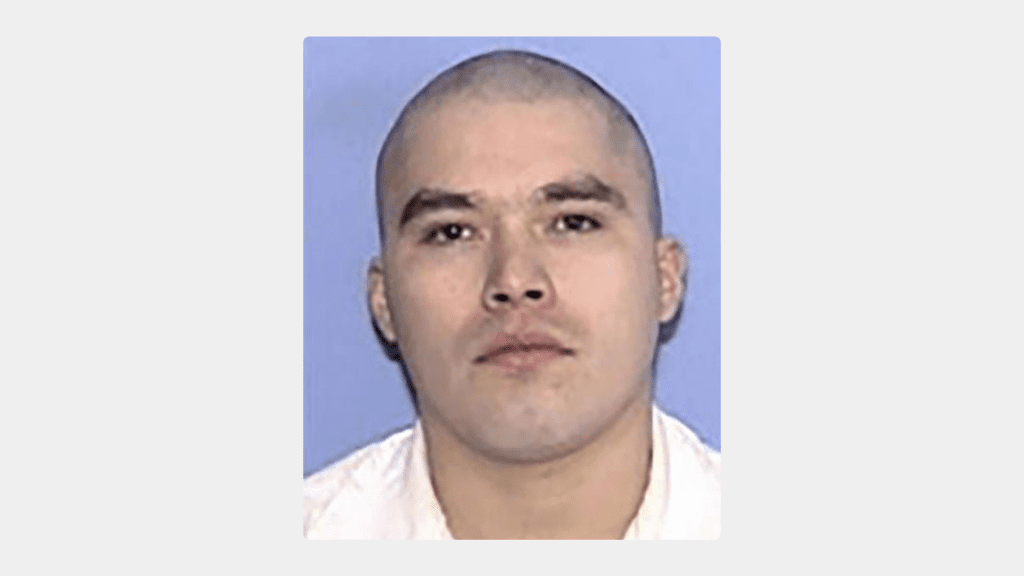The U.S. Supreme Court weighed the concerns of both religious freedom and prison security in oral arguments Nov. 9 regarding a condemned Texas inmate’s request to have a Southern Baptist pastor lay hands on and pray for him when he receives a lethal injection.
The case involves a suit by John Ramirez against Texas prison officials for refusing to permit Dana Moore, pastor of Second Baptist Church in Corpus Christi, to minister to him when he is executed. Ramirez, 37, was scheduled to receive the death penalty Sept. 8, but the Supreme Court granted a stay of the execution that night. Ramirez was sentenced to capital punishment for a 2004 murder in Corpus Christi.
The Southern Baptist Ethics & Religious Liberty Commission (ERLC) joined in a friend-of-the-court brief with the Christian Legal Society (CLS) and six other faith or religious freedom organizations in support of Ramirez’s free exercise of religion.
Ramirez should prevail under the Religious Land Use and Institutionalized Persons Act (RLUIPA), Houston lawyer Seth Kretzer told the high court Tuesday.
RLUIPA, a federal law enacted in 2000, prohibits the government from substantially burdening the free exercise of religion by an inmate and by a person or institution in land-use cases. The government, however, can gain an exemption from the law if it can show it has a compelling interest and is using the “least restrictive means” to further that interest.
Texas’ practices for four decades and the current approaches of the federal government and some states “prove that Texas’ restrictions on touch and prayer are not the least restrictive means of furthering its proper execution interests,” Kretzer said.
The Texas Department of Criminal Justice changed its policy on permitting clergy in the execution chamber after the U.S. Supreme Court stayed Patrick Murphy’s execution in 2019 because his Buddhist spiritual advisor was not allowed to be present though Christian and Muslim chaplains were. The department barred all spiritual advisors from the execution chamber until it revised its policy in April of this year to permit their presence. Chaplains are not permitted to pray or read scripture while in the chamber, however.
While Kretzer contended Ramirez acted with sincerity, Judd Stone, the state’s solicitor general, told the justices they “should not countenance” a delay of Ramirez’s execution date for the fourth time. Ramirez has acted “for purposes of delay” of his execution by such tactics as postponing “seeking accommodations” and changing “his litigation positions,” Stone said.
Stone acknowledged Texas prison officials seek to limit security and safety risks to almost nothing but admitted he is unaware of any executions in other states going amiss because an outside spiritual advisor was permitted in the death chamber.
After the arguments, Brent Leatherwood, the ERLC’s acting president, said in written comments, “While it is hard to decipher which way the court will rule based on oral arguments in any case, I think it was clear from at least one standpoint: The attorney representing Texas was unable to articulate a compelling rationale for why Pastor Moore should not both be able to touch and audibly pray over Mr. Ramirez in this moment.
“Religious freedom matters at all times, but especially so when one is about to pass on from this life. That is what the court heard today, and we pray they will rule in a way that respects this first freedom.”
Associate justices Samuel Alito and Brett Kavanaugh expressed concerns a ruling in Ramirez’s favor would result in, as Alito put it, an “unending stream of variations” of requests by condemned inmates for practices by spiritual advisors. A decision for Ramirez could take much of the court’s docket in the years ahead, Kavanaugh said. He shares Alito’s desire for a “bright-line rule” or guidelines regarding such cases, said Kavanaugh, who also voiced concern for the effect of the court’s ruling on the family of the murder victim.
Eric Feigin, the U.S. deputy solicitor general, said without supporting either party the Department of Justice thinks Texas has “a very strong argument to resist physical contact” during the lethal injection. “We think conversely [Ramirez] has a fairly strong argument for vocalization” before injection, he said.
The Federal Bureau of Prisons, Feigin said, has permitted “vocalization essentially throughout” the execution process but has allowed physical contact briefly only once before administration of the drugs. On each occasion when a spiritual advisor has been present, he has been far removed from the inmate when the drugs were administered, he said.
In his lawsuit, Ramirez was described as a “devout Christian.” Moore has ministered to Ramirez since 2016, when the prisoner was accepted as a member of Second Baptist Church. In 2008, Ramirez was convicted of the murder of convenience store clerk Pablo Castro, whom he stabbed 29 times during a robbery.
The ERLC-endorsed brief, filed in late September, argued the state violated RLUIPA. Texas has failed to show “its blanket prohibition on spiritual advisors engaging in audible prayer or physical touching of the prisoner furthers ‘a compelling government interest’ and is the ‘least restrictive means of furthering’” such a compelling interest, according to the brief.
The state has fallen short of meeting RLUIPA’s requirement that it “present specific evidence – not merely generalized assertions or speculations – as to why banning these practices is necessary to serve order and security,” the brief said.
In addition to the ERLC, also signing onto the brief filed by CLS were the National Association of Evangelicals, Baptist Joint Committee for Religious Liberty, Anglican Church in North America, General Conference of Seventh-day Adventists, Rutherford Institute and Queens (N.Y.) Federation of Churches.
(EDITOR’S NOTE – Tom Strode is Washington bureau chief for Baptist Press.)

